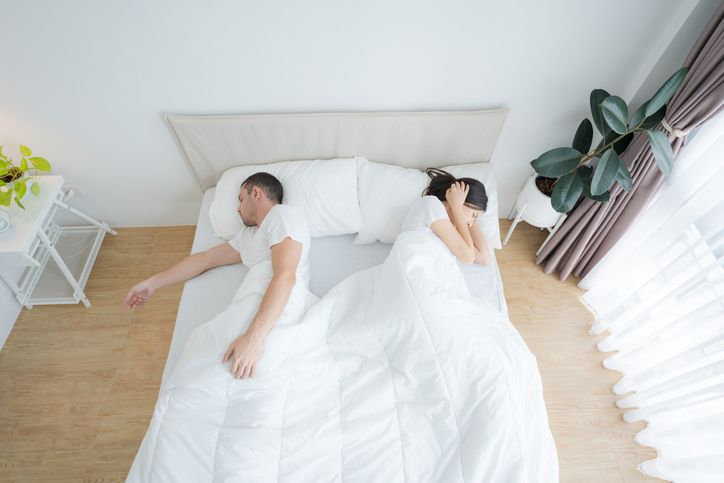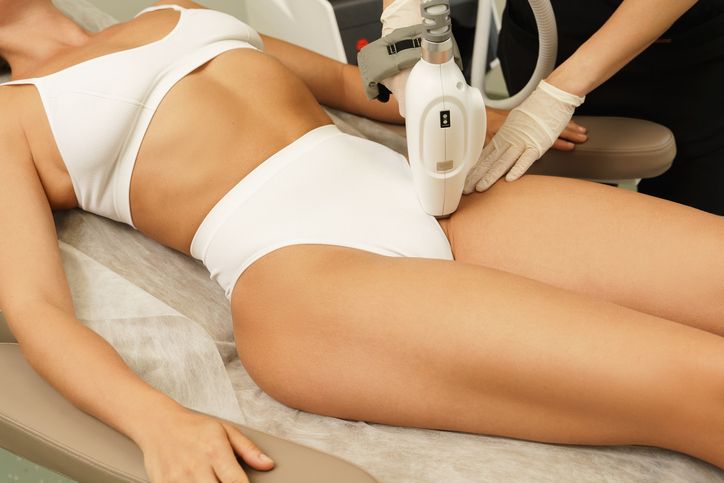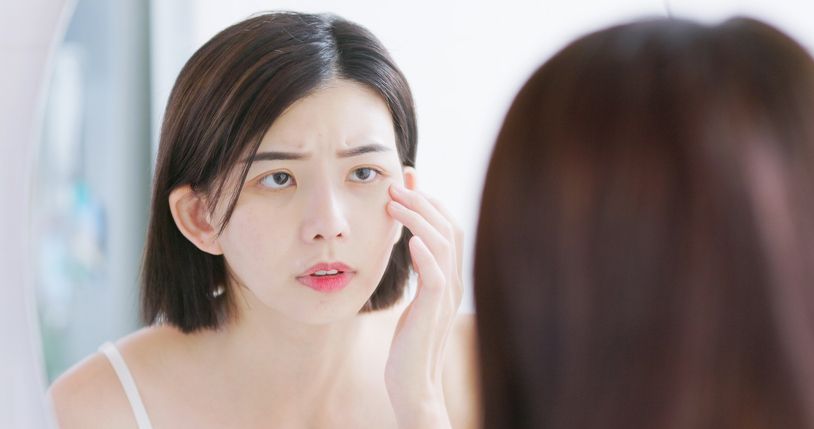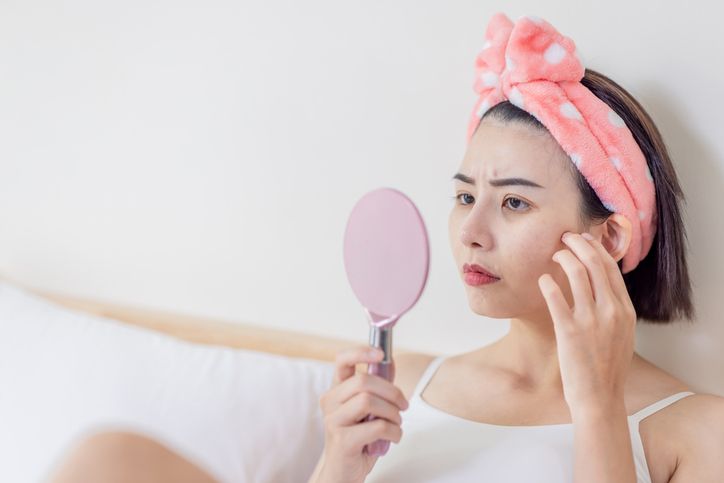- Home
- Trend
- Weight Loss Strategies
- Acne Tips
- Hair Health Information
- Blemish Removal Tips
- Acne Scar Removal Tips
- Muscle Building Techniques
- Intimate Care Tips
- Postpartum Intimate Care
- Eye Bags Wiki
- Tips for Face Slimming
- Secret of Permanent Hair Removal
- Breast Enlargement Tips
- Cure to Snoring
- Marionette Lines
- Skin-Tightening Secrets

免費體驗
Acne Scarring Treatment
1 Minute Self-Registration
Date should not be before minimal date
Many people, especially those with more delicate skin, find that acne scars are emotionally and physically draining. Acne scar treatments might be more difficult and harmful for those with sensitive skin because of its susceptibility to irritation, inflammation, and allergic responses. However, there are still effective methods to lessen the visibility of acne scars without causing damage to your healthy skin. Check out the advice and suggestions on how to treat acne scars on delicate skin.
1
Types of Acne Scars and How Do They Form

Acne scars are the result of damage to the skin caused by inflamed acne lesions. When acne breaks out, it can cause inflammation and infection in the pores, which can damage the collagen and elastin fibres that support the skin structure. As the skin heals, it may produce too much or too little collagen, creating uneven textures and pigmentation on the skin surface. These are known as acne scars.
There are different types of acne marks or scars, depending on their shape and appearance. Some common types are:
Ice pick scars
These are deep and narrow scars that look like small holes or punctures on the skin. They are caused by severe inflammation that destroys the surrounding skin and tissue.
Boxcar scars
Section 1 Part 2 Content 1aThese are wide and shallow scars that have sharp edges and flat bases. They are caused by moderate inflammation that damages the collagen fibres.
Rolling scars
These are broad and depressed scars that have rounded edges and an irregular surface. They are caused by chronic inflammation that pulls the skin downward.
Hypertrophic scars
These are raised and thickened scars that protrude above the skin level. They are caused by excessive collagen production during the healing process.
Atrophic scars
These are thin and flat scars that sink below the skin level. They are caused by insufficient collagen production during the wound healing process.
Post-inflammatory hyperpigmentation (PIH)
This is not a true scar, but a temporary discoloration of the outer layer of the skin that occurs after an acne lesion heals. It can range from pink to brown to black, depending on your skin tone and the severity of the inflammation.

2
Why People with Sensitive Skin Should Be More Aware of Acne Scars?
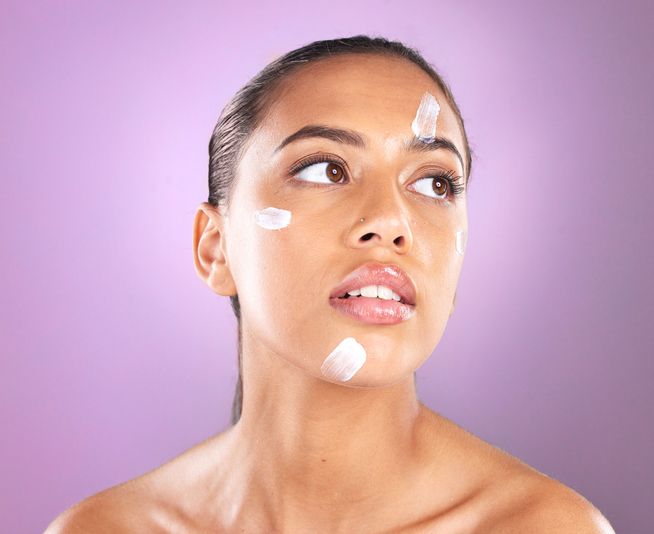
Many people have sensitive skin, which is a common problem. It means the skin is more likely to get red, irritated, or have an allergic response. Acne, which is a long-term inflammation disorder of the hair follicles and sebaceous glands, can also be more likely to happen on sensitive skin.
Depending on how bad the acne is and how long it lasts, it can leave different kinds of scars. Some scars are high, others are flat, and others have changed colour. Acne scars may be more likely to happen on sensitive skin because:
Thinner skin layer
People with sensitive skin may have a weaker skin layer, which makes it harder for acne lesions to heal and for infections to stay away.
More responsive towards treatments like chemical peel
Treatments for acne like benzoyl peroxide or salicylic acid, which can cause inflammation, dryness, and peeling, may have a stronger effect on skin that is more sensitive. This can make the redness worse and make scarring more likely.
Higher chance to get darker skin
People with sensitive skin may be more likely to get hyperpigmentation, a darkening of the skin caused by more melanin being made. Hyperpigmentation can happen when acne scars leave dark or red marks after they heal.
- Acne Patch-Pedia: Know Everything About Acne Patch Today
- What is Milia? Detailed Guide: Appearance, Formation, Comparison to Blackheads and Whiteheads, and Effective Solutions for All Skin Types!
- How Does Pimple Patch Improve Acne and Breakout? What Are the 10 Best Pimple Patches?
- Why Are There Small Bumps On Face That Aren't Acne?
3
The Skin Culprit: What Causes Sensitive Skin?

Scars from acne are caused by the inflammation that acne spots cause. The inflammation hurts the skin tissue and makes the body make collagen, which is used to heal the cut. Sometimes, too much or the wrong kind of collagen is made, which can cause scars to be raised or sunken. Scars from acne can happen to anyone, no matter what colour their skin is. But having serious or inflammatory acne, picking or squeezing the pimples, having a family history of acne scars, or having darker skin can make it more likely that you will get acne scars.
However, sensitive skin is more common among women with fair skin. Sensitive skin is more reactive to external stimuli, such as chemicals, fragrances, sunlight, temperature changes, and stress. Sensitive skin can also have a compromised skin barrier, which makes it more vulnerable to dehydration, irritation, and infection. Some factors that can contribute to sensitive skin are:
Genetics
Some people are born with sensitive skin or inherit it from their parents.
Environment
Exposure to pollution, dry air, harsh weather, or hard water can damage the skin barrier and trigger sensitivity.
Lifestyle
Smoking, drinking alcohol, eating spicy foods, or using harsh cosmetics can irritate the skin and cause inflammation.
Skin conditions
Certain skin conditions, such as eczema, rosacea, psoriasis, or dermatitis, can make the skin more sensitive and prone to scarring.
Hormones
Hormonal fluctuations during puberty, pregnancy, menopause, or stress can affect the oil production and inflammation levels in the skin.
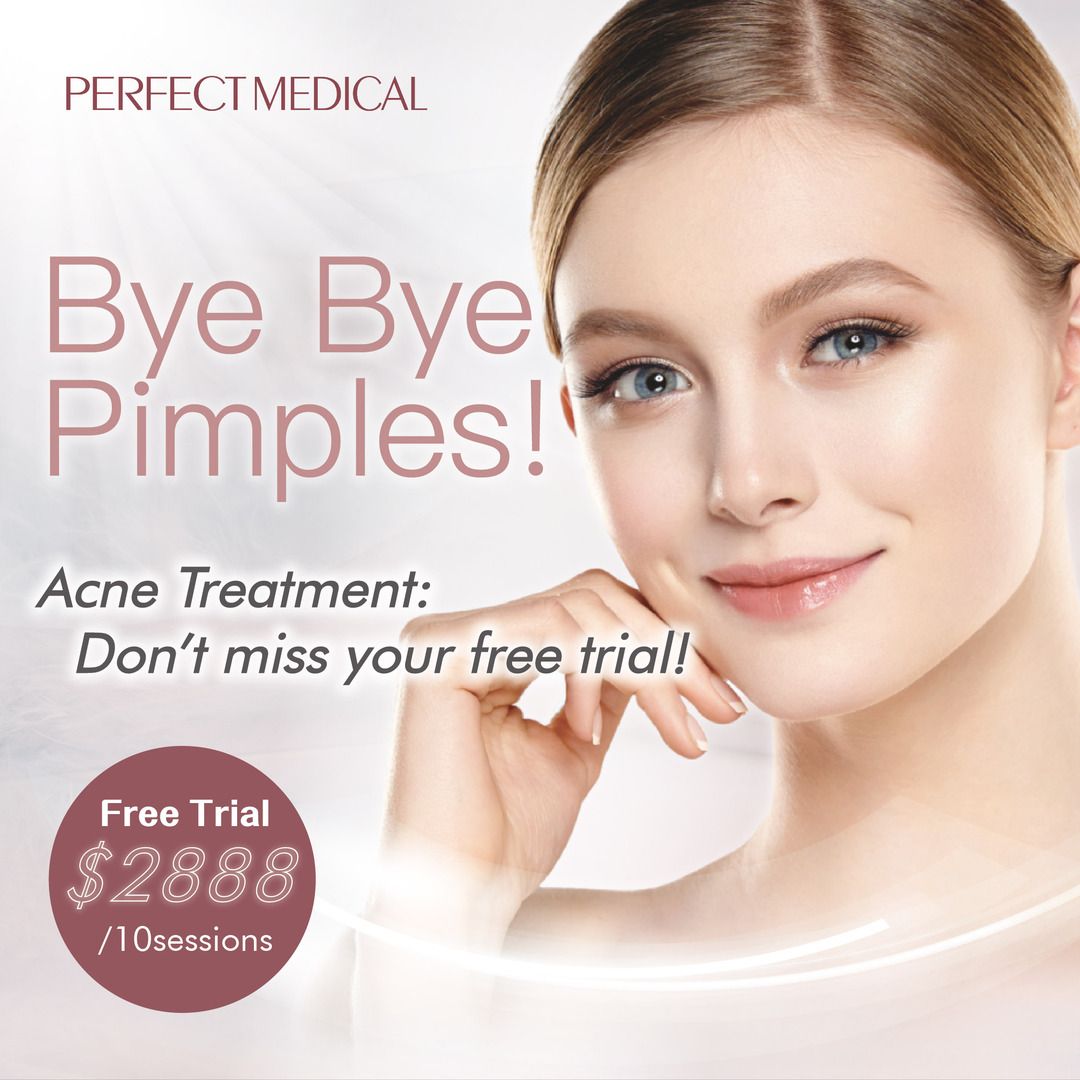
4
How to Get Rid of Acne Scars for Sensitive Skin?
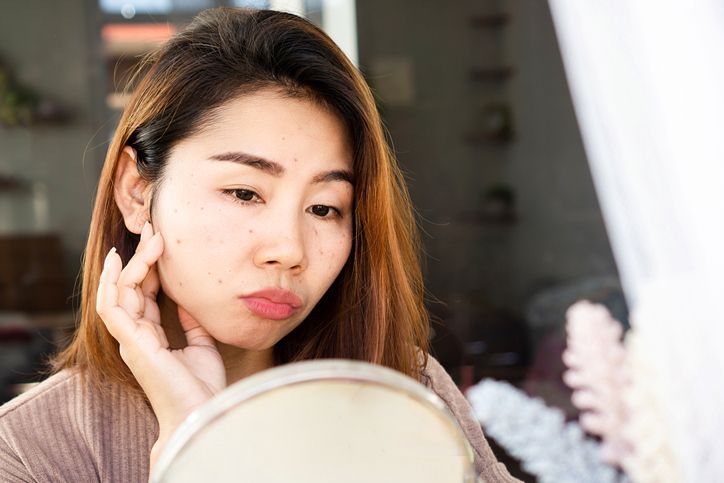
Getting rid of acne scars for sensitive skin can be a challenging task, but not impossible. The key is to find a treatment that suits your skin type and condition, and to follow some basic guidelines to prevent further damage and irritation. Depending on the type and size of the scars, there are different ways to treat acne scars on sensitive skin. Here are some of the choices:
Consult a dermatologist
Before starting any treatment for acne scars, it is advisable to consult a dermatologist who can assess your skin condition and recommend the best option for you. A dermatologist can also prescribe medications or perform procedures that can help improve your scar appearance.
Natural products
Natural treatments like aloe vera, honey, or rosehip oil may help calm the skin, reduce redness and discoloration, and make it feel better.
Product with chemicals
Over-the-counter products, like creams or gels with retinoids, niacinamide, vitamin C, or alpha hydroxy acids, may help improve the texture and look of the skin by promoting the collagen production and removing dead skin cells.
Treatments that can fix the appearance of acne scars
This may not be the ideal treatment, but in certain cases, medical treatments like chemical peels, microneedling, laser therapy, or dermal fillers may help smooth out the skin and fill in sunken scars. These treatments should be done by a dermatologist or a licenced professional who can change the intensity and frequency based on how sensitive the skin is.
Acne scars can make a person feel bad about themselves and less confident. But with the right care and treatment, they can be less noticeable and the skin's health and looks can get better.
Steps to avoid acne scarring:
If you have sensitive skin, it may be hard to find acne treatments that won't hurt your skin or make you sick. But you can find some acne treatments in Singapore that are good for people with sensitive skin. Here are some suggestions on how to choose:
- Look for goods that say they don't cause acne, are hypoallergenic, don't have any scents, and don't contain any alcohol. These items are less likely to clog your pores, make your skin red, or make it dry.
- Stay away from products with harsh chemicals like benzoyl peroxide, salicylic acid, retinoids, and sulphates. These ingredients can be helpful in treating acne, but they can also make sensitive skin red, peel, burn, or itch.
- Choose goods with gentle ingredients like niacinamide, azelaic acid, zinc, or tea tree oil. These chemicals can help reduce inflammation, kill bacteria, and control the amount of sebum your skin makes without causing irritation.
- Try the product on a small part of your skin before putting it on your face. Apply a small amount of the product to your inner arm or behind your ear and wait 24 hours. You can use the product on your face if you don't have any bad effects.
- Follow the directions on the package and use it the way it says to. Don't use the product more than the instructions say to or more often than they say to. This can make soreness or sensitivity more likely.
- After using acne products, make sure to moisturise your face. Acne products can make your skin dry, which makes it more likely to get irritated or inflamed. Use a gentle moisturiser that is right for your skin type and put it on after you've cleaned and treated your face.

免費體驗
Acne Scarring Treatment
1 Minute Self-Registration
Date should not be before minimal date
5
Get Rid of Scar Tissue Right: Acne Scarring Treatment from Perfect Medical

Look no further if you wish to get these enemies reduced without jeopardising your sensitive skin barrier. The 1064nm laser technology used in Perfect Medical's Acne Scarring Treatment gets deep into the tissue. The photothermal action breaks up the excess melanin that causes acne so that the body can get rid of it. Laser energy also speeds up the production of collagen and elastin, which help repair skin tissues. This treatment is great for all kinds of acne scars, such as rolling scars, hypertrophic scars, raised scars, atrophic scars, boxcar acne scars, brown and red spots, ice-pick scars, and more!
Perfect Medical knows how hard it is to deal with these enemies, so this treatment uses a two-way spiral suction and draining technology to deep-cleanse and exfoliate the pores, sucking out oil, dirt, and dead skin cells. Once the skin is free of dirt and sebum, a medical-grade hydrating serum is injected into the pores to repair the water-to-sebum ratio and boost collagen production.
By cleaning the skin and stopping the production of sebum, acne is less likely to come back. This makes the skin smoother, brighter, cleaner, and healthier, and you are less likely to encounter deeper scars even if you have dark or uneven skin tone. Remove acne scars by selecting Perfect Medical's Acne Scarring Treatment today!

免費體驗
Acne Scarring Treatment
1 Minute Self-Registration
Date should not be before minimal date
FAQ

1. What are the benefits of using sensitive skin facial cream for treating acne scars?
Sensitive skin facial cream for acne can help reduce inflammation, redness, and dryness caused by acne and environmental triggers. It can also prevent clogged pores and further breakouts by using oil-free or non-comedogenic ingredients. Some sensitive skin facial creams for acne may also contain mild exfoliants or anti-acne agents, such as salicylic acid, to gently unclog pores and clear acne-causing bacteria.
2. How do I choose the best sensitive skin facial cream for acne for my skin type to prevent acne scars?
The best sensitive skin facial cream for acne for your skin type depends on your specific needs and preferences. Generally, you should look for products that have less than 10 ingredients, avoid alcohols, fragrances, sulfates, preservatives, and dyes, and contain soothing and hydrating ingredients, such as hyaluronic acid, ceramides, aloe vera, vitamin E, and green tea. You may also want to consider your skin's moisture level and choose a cream, gel, or lotion accordingly.
3. Why is patch testing important for people that want to prevent acne scars occur?
Patch test the product on a small area of your skin before using it all over your face to check for any adverse reactions. It is a way to find out what kinds of things can cause allergic contact dermatitis. It is done by putting diluted allergens on the skin, normally on the back, and waiting 48 hours to see if there are any reactions. Thus, patch tests can help you avoid using items that might irritate your skin and cause itching, redness, or blisters. By testing a small area of your skin, you can find out which items are safe and good for your skin type and keep your skin from getting worse.
4. Do people with darker skin tones have a higher chance of getting an acne scar?
People with darker skin may have more melanin, which is the pigment that gives the skin its colour. Melanin can also change how the skin heals and cause either too much or too little colour. When the skin makes too much melanin, it makes dark spots or patches on the face. This is called hyperpigmentation. Hyperpigmentation is when the skin doesn't make enough melanin. This makes the skin have light spots or patches. Both too much and too little colour can make acne scars stand out and make them harder to treat. So, people with darker skin may be more likely to get acne scars that are noticeable and last a long time.
5. What's the difference between lactic acid with other acids, and how it can reduce acne scars?
Lactic acid is a type of alpha-hydroxy acid (AHA) that is naturally found in sour milk and other fermented foods. It is also produced by the muscles during exercise. Other types of AHAs include glycolic acid, citric acid, and malic acid. AHAs work by exfoliating the top layer of dead skin cells and stimulating the production of collagen and elastin. Lactic acid can help improve the appearance of acne scars by reducing hyperpigmentation, smoothing out uneven texture, and brightening the skin tone. Lactic acid is also more gentle and hydrating than other AHAs, making it suitable for sensitive skin. However, lactic acid can still cause irritation, dryness, and sun sensitivity if used too often or at high concentrations. Therefore, it is important to start with a low percentage of lactic acid (such as 5% or 10%) and gradually increase the frequency and strength as tolerated. It is also essential to use sunscreen daily when using lactic acid or any other AHA product.






